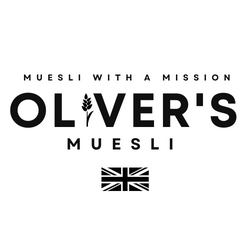*I'm cool with all dietary preferences, however you choose to enjoy my muesli*
At this time of year, our social media feeds, supermarkets aisles and food outlets are awash with messages about veganuary, but is a plant-based diet really as sustainable as it seems? Well, the answer is, it's complicated....
Clearly there are massive issues with the environmental impact of most meat and dairy production systems. You also only have to look at the average diet in the UK to see that most people consume way too much. From a health perspective alone, most people would benefit from moderating their meat and dairy intake and eating more vegetables, beans and pulses instead.
In fact, the changes to diet recommended by the UK Committee on Climate Change (20% reduction in meat and dairy consumption by 2030) in order to allow the UK's land use to support a move to net zero are very similar to those needed for the UK to meet healthy eating guidelines. Therefore, if everyone simply ate a healthy, balanced diet it would go a long way towards enabling the farming and land use sector in the UK to reach net zero.
Sounds pretty simple eh? Well, consumption (i.e. people's diets) is one thing, production is another thing. It's all very well changing diets, but the food that we eat in the future, also needs to be produced sustainably. There's a strong argument to make, that the UK should aim to meet as much of our food production needs as possible, rather than exporting the impact of food production overseas. This means that consideration also needs to be give to what is actually viable to produce in the UK (and how).
In my previous blog, I talked a bit about the importance of soil health. One very effective way to improve soil health, reduce reliance on fossil fuel-based fertiliser and to store more carbon in soils, is to integrate carefully managed livestock (here I'm talking about cows and sheep really) in crop production systems. There's also an increasing body of research that points to the damage that artificial fertiliser does to soil health too.
From a sustainability perspective, livestock are a vital part of any sustainable farming system. The manure from livestock is an ideal source of bioavailable nutrients for crops and increases soil organic matter levels (storing more carbon & water and helping the soils better withstand extreme weather). Well-managed grazing also helps maintain and enhance some of the UK's most endangered habitats, wildflower meadows.
Organic famers (who don't use artificial fertiliser) rely on livestock to help provide the nutrients that their crops need and this system is only viable with livestock (for cereal crops and pulses, veg is a different story). More and more non-organic farmers are replacing artificial nitrogen fertiliser with animal manure. If farmers want to avoid using artificial fertiliser, we need livestock.
Meat and dairy production is inherently sustainable. Animals convert food that we can't eat (i.e. grass and food byproducts such as brewers grains and rapemeal) into highly nutrient dense food. This means that human food can be produced off land that otherwise wouldn't produce food, whilst also providing environmental benefits. It also avoids potentially enormous food waste streams.
The environmental issue arise, when production is intensified to an extent that large amounts of crops have to be grown specifically to feed animals. Economic pressures prompt ever larger numbers of animals to be kept in an area that really can't support them, without large quantities of external inputs. This is best summed up with "It's not the cow, but how".
The question that needs to be answered is not whether we should be eating meat or dairy, but how much and how these animals are reared. It will require significant dietary change, but as mentioned, this does not always directly correlate with production. Most research on "sustainable diets" gives almost no attention to how these foods can be produced sustainably. This is a major oversight.
The UK is blessed with a climate that lends itself well to sustainable rearing of cows and sheep (in fact the footprint of UK beef is about 60% lower than the global average). Many, if not all of the farmers growing ingredients for Oliver's Muesli will rely on livestock in some form or other, to produce these crops sustainably.
Whilst I have strong views about what a "sustainable" diet looks like in the context of the UK, I can understand why people might feel that ditching meat and dairy is the only thing to do. Like all complicated issues, there is rarely a single simple solution. For me, it starts with dietary change in line with healthy eating guidelines. Alongside this, every effort needs to be made to ensure that sustainable British production is supported. In many cases, plant-based diets don't do this (more to follow). However, there are also countless exciting opportunities for sustainable diets to go hand in hand with supporting pioneering British farmers. This is exactly what Oliver's Muesli sets out to do.
For a balanced view on this, I would recommend reading some of the articles from the Sustainable Food Trust.

